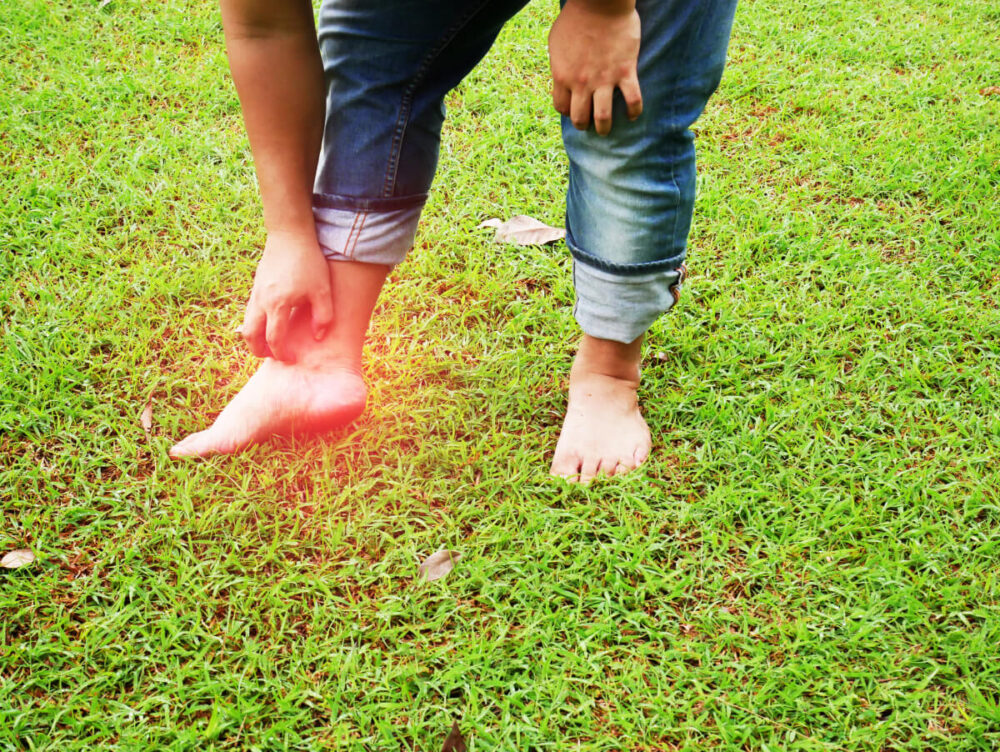


Argentine ants are dark brown in color that release a musty odor and one of the most aggressive and invasive ant species originating from South America. These ants often infest homes during hotter periods of the year. While they have been known to be territorial and possibly attack other species, Argentine ants rarely bite humans. However, it’s still possible when they’re provoked.
So what should you do if you’re bitten by an Argentine ant? The short answer is you don’t really have to do anything if bitten by an Argentine ant. While aggressive, their bites are non-harmful to humans and will often never cause more than slight discomfort. The most extreme case is that you’ll have an allergic reaction and will need to take anti-allergen medicine to soothe the discomfort.
Read More: How Big Are Argentine Ants Nest?
Unless Argentine ants feel that you’re provoking them or a threat to their source of food, there is very little chance they will even bite you. They’ll only really attack their natural enemies like spiders, lizards, or other ants who are also in search of food in their territory.
If for some reason you find yourself bitten by an Argentine ant, it will most likely just feel like any other ant bite, briefly uncomfortable but overall not hazardous to your health. If an allergic reaction occurs, however, you can use anti-allergen medicines like itch creams or an antihistamine to relieve your symptoms.
While it has been established that Argentine ant bites are harmless, no one wants to be bitten by an ant if avoidable. Luckily, there are a few things that you can do to avoid getting bitten by Argentine ants. Some of these are to avoid provoking the ants, keep the ants out, remove them from the vicinity, and call pest control services if all else fails.
Any activity against worker ants like taking their food away or maybe kicking their ant nest will surely provoke Argentine ants to bite you. If you see a nest or trails of ants anywhere in your home, it may be best to address it from a distance to avoid getting bitten. This is not to say you should just leave them to their own devices in your home though.
You can use a lethal ant-repellent spray to address the ant trail and remove them once deceased. You can also just wipe them off the table quickly with a paper towel but depending on the number of Argentine ant workers you encounter this may lead them to crawl on your hand and bite you.
With Argentine ant colonies being quite difficult to remove once they have settled into your home, the best thing to do to avoid being bitten is to keep them out of your home in the first place. These foraging ants will most likely send a scout ant to your home to see if there’s a variety of food to be found.
The easiest thing to do to keep them out is to cut off any possible food source they may find. This means properly storing all your food in tight containers and avoiding any leaky faucets and stagnant water sources like pet food and bowls. Additionally, you could use ant repellents that release an irritating smell forcing the ants to redirect themselves to a more inviting environment.
If you’re already experiencing an Argentine ant infestation, it will be more likely that you will be bitten due to the sheer size their colonies can expand to. Argentine ant queens can reproduce at an alarming rate and make up around 10% of the whole Argentine ant nest. This means that while you can treat the ants you see in your home unless you treat the ant nest directly, the infestation is likely to reoccur.
To target the ant nest specifically, you can use an ant bait. These ant baits are placed in bait stations and masquerade as sweet foods or other attractive food sources and are laced with toxins that when digested for ants are lethal.
Harvester ants will bring the ant bait back to the ant colony and share it with the population to eat. With all of them ingesting the toxins, it should only be a matter of time before the entire colony is dead.
Alternatively, if you can locate the ant nest, you can also pour over hot water in their opening which will drown and kill them all instantly. This may leave a few stray argentine ants who are outside of the colony but without their hundreds of queens reproducing they will die out soon as well.
If you’ve tried every at-home treatment to deal with an Argentine ant infestation and still continue to see them, you may want to call for a professional exterminator. They have access to the right natural and chemical treatments to target key points in your space to ensure that it will be ant-free. Once your area has been treated and all the ants are gone, you’ll no longer be at risk of being bitten by Argentine ants.
While you may not be worried about getting bitten by Argentine ants, you should still get them removed from your home as soon as possible, whether it be done by you or a professional. Their bite contains no harmful venom to humans, but as scavengers, they do live and travel to places like water pipes, garbage, dirt, etc. This makes them carriers of pathogens and diseases that will likely get you sick. As they search for food in your home, Argentine ant infestations can lead to widespread food contamination in your own food supplies and be harmful to your health.
Learn More: How to Stop Argentine Ants From Invading Your Home

Pest in homes can cause quite a bit of trouble for those living there. These can range from agricultural pests to ant pests and anything in between. When it comes to the massive colonies of Argentine ants, you may need professional help to exterminate them all and prevent further infestation.
Here at Permakill Exterminating, we offer Argentine ant treatments that are sure to kill ants on contact. Get your peace of mind back and call us today for an Argentine ant treatment plan or talk to us about any other pest control issues you may have.